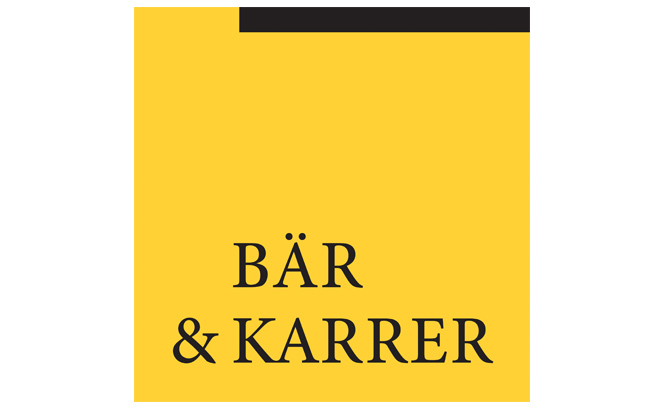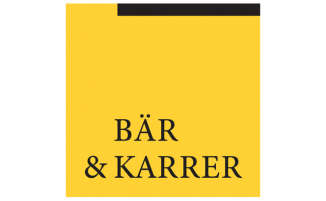Dr Vera Naegeli and Marie-Cristine Kaptan discuss the evolving ESG legal field in Switzerland and how companies can abide by the new regulations.
Overview of the Swiss Legal ESG Framework
General overview
The term ‘ESG’ as such does not exist in Swiss legislation. It may be interpreted in many different ways and encompass a diverse set of rules that are related to environmental, social or (corporate) governance matters. Laws on the protection of the environment (such as the Federal Act on the Protection of the Environment of 7 October 1983), on human rights and workers’ protection (ie, regarding social matters, such as certain provisions of the Swiss Federal Constitution and the Federal Act on Work in Industry, Commerce and Trade of 18 April 1999) and on certain governance aspects of corporations (in the Swiss Code of Obligations of 11 March 1911, ‘CO’) are not new and not part of this insight into Swiss ESG laws. For the purposes of this article, we use the term ‘ESG’ to capture a trend around sustainability that emerged over the past few years whereby, based on requests from the people, (mostly) states and companies are asked to act in a more considerate way towards the environment and society, and to continue to implement best practices in their governance.
Currently, the most significant Swiss ESG rules are the newly introduced provisions regarding reporting on non-financial matters and the due diligence and reporting obligations on conflict minerals/metals and child labour.’
This new ESG legal field is evolving quickly. For example, on 18 June 2023, the Swiss citizens will vote on the introduction of a new Federal Act on Climate Protection Goals, Innovation and Strengthening Energy Security which contains specific greenhouse gas emissions goals both for the state and all companies. Currently, the most significant Swiss ESG rules are the newly introduced provisions regarding reporting on non-financial matters (art 964a ff. CO) and the due diligence and reporting obligations on conflict minerals/metals and child labour (art 964j ff. CO and the Ordinance on Due Diligence and Transparency in relation to Minerals and Metals from Conflict-Affected Areas and Child Labour of 3 December 2021, ‘DDTrO’) [1] (together, referred to as the ‘ESG Laws’ in this article). They are effective since 1 January 2022 and affected companies are required to publish their first reports with respect to the business year starting in 2023 (hence, the first reports are expected early to mid-2024).
Report on non-financial matters
The reporting obligations on non-financial matters apply to large [2] Swiss companies that are listed on a (Swiss or foreign) stock exchange or supervised by the Swiss Financial Market Supervisory Authority (‘FINMA’) and require such companies to publish an annual report covering five matters: (1) environmental matters, in particular CO2 goals; (2) social issues; (3) employee-related issues; (4) respect for human rights; and (5) combating corruption. The report should contain the information required to understand in particular the business performance and the effects of the company’s activities on these non-financial matters (art 964b para 1 CO).

This includes a description (and thus prior internal identification) of the main risks related to these matters – arising from the company’s own business operations but also, where relevant and proportionate, arising along the supply chain – as well as a presentation of the policies adopted in relation to these matters and the measures taken to implement the respective policies and handle the risks identified (art 964b para 2 CO).
With respect to climate (ie, a sub-category of the first matter regarding environment), the Swiss Federal Council enacted an ordinance to clarify the obligations of affected companies and enable better comparability of climate reports, which will enter into force on 1 January 2024 [3] . This Ordinance on the Reporting of Climate Matters (ORCM) establishes the legal presumption that the obligation to report on climate matters is fulfilled if the report is based on the recommendations of the Task Force on Climate-related Financial Disclosures (TCFD) (art 2 para 1 ORCM). Companies are thus not forced to follow the TCFD recommendations, but in such case must provide evidence that they comply with the reporting requirements.
The annual report on non-financial matters must be approved by the board of directors as well as the general meeting of shareholders (art 964c para 1 CO), and published online immediately following approval, remaining publicly accessible or at least ten years (art 964c para 2 CO). It should be noted that while Swiss law requires the publication of a report on non-financial matters, the five areas only have to be covered on a ‘comply or explain’ basis. This means that if a company does not follow a policy with respect to one or more of the matters, this must be explained in the report, stating the reasons why the company took that approach (art 964b para 5 CO). Hence, if a company deems one or several of the matters not to be relevant for its business activities and operations, the respective reporting obligations are fairly limited. On the other hand, even though the law only mandates disclosure (rather than any actions or omissions with respect to any of the five matters), compliance with the reporting obligations requires some prior due diligence in order to properly analyse the risks a company faces and impacts its operations have. The implications for affected companies may therefore go beyond the mere preparation of a report.
Due diligence and reporting obligations regarding conflict minerals and metals and child labour
The Swiss due diligence and reporting obligations regarding conflict minerals and metals as well as child labour are more extensive than the rules with respect to the report on non-financial matters in two ways:
(1) the number of companies potentially affected by these rules is significantly greater than the number who must complete the report on non-financial matters; and (2) the areas of conflict minerals and metals and child labour not only require the publication of a report, but also adherence to certain due diligence standards.
‘The rules regarding conflict minerals and metals as well as child labour apply to all companies with a legal seat, head office or principal place of business in Switzerland.’
In principle, the rules regarding conflict minerals and metals as well as child labour apply to all companies with a legal seat, head office or principal place of business in Switzerland (Swiss companies) (art 964j para 1 CO). If a Swiss company places in free circulation or processes in Switzerland minerals containing tin, tantalum, tungsten or gold or metals from conflict-affected and high-risk areas, and those materials exceed the thresholds specified in annex 1 of the DDTrO, the respective obligations apply regardless of the size of the company.
With respect to child labour, small and medium-sized companies [4] are generally exempt from the Swiss obligations [5]. Any other Swiss company must, as a minimum, check whether there are reasonable grounds to suspect child labour, unless such company qualifies as a low-risk undertaking. A low-risk undertaking is a company which only procures or manufactures products or primarily procures or provides services in countries whose due diligence response is rated as ‘basic’ by UNICEF in its Children’s Rights in the Workplace Index (art 7 DDTrO). If a Swiss company does not qualify as a small or medium-sized company, or a low-risk undertaking in the sense of art 7 DDTrO, and if it offers products or services in relation to which there is a reasonable suspicion that they were manufactured or provided using child labour, the respective due diligence and reporting obligations apply. If any of the above-mentioned exemptions apply, this must be documented internally (but no report must be published).
‘When considering transactions or business deals with Swiss companies, it should become part of the legal due diligence to examine whether the target or business partner complies with all applicable Swiss ESG laws.’
There are two further exemptions which are relevant for conflict minerals and metals as well as child labour: a Swiss company is exempt if (1) it is included in the consolidated report of another Swiss company or an equivalent report of a foreign company by which it is controlled (art 17 DDTrO) – in this case, the company must indicate in the notes to its financial statements the other legal entity in whose report it is included; or (2) it adheres to and applies in their entirety the internationally recognised equivalent regulations listed in annex 2 of the DDTrO (art 9 DDTrO) – in which case the company shall prepare a report in which it names the internationally recognised regulations. The equivalence of a report by a foreign company must be determined on a case-by-case basis.
Swiss companies that are affected by the due diligence and reporting requirements regarding conflict minerals and metals or child labour (and that cannot rely on any of the exemptions) have several due diligence obligations: they must establish a supply chain policy, a supply chain traceability system, an early warning mechanism for risk identification and a reporting procedure allowing interested parties to raise reasonable concerns, and put in place a risk management plan – all in accordance with the likelihood of occurrence and the severity of potential adverse impacts (art 965k paras 1 and 2 CO, art 10-15 DDTrO). On an annual basis, a report must be produced, approved by the board of directors and published electronically within six months of the end of the financial year (art 964l CO).
Only the report regarding conflict minerals and metals must be audited by a licensed audit firm (art 16 DDTrO) [6].
Potential Consequences of Violating the Swiss ESG Laws
Contrary to some other European jurisdictions, the reports on non-financial matters and on due diligence obligations for conflict minerals/metals and child labour do not have to be submitted to any government agency. Rather, they have to be made publicly available. There is criminal liability for wilfully or negligently (i) not publishing any of these required reports at all; (ii) providing false information in any of these reports; or (iii) not complying with the related archiving and documentation requirements (art 325ter of the Swiss Criminal Code of 21 December 1937,‘CC’). It would be upon the cantonal criminal prosecution authorities to (either at their own initiative or based on a criminal complaint) initiate criminal proceedings against the individuals at the respective company who are responsible for preparing and publishing the reports or who bear overall responsibility for the reporting (ie, the members of the board of directors) – the company itself cannot be fined. [7]
Even though the law does not foresee a limitation in terms of the materiality of violations, we expect that in practice, a materiality threshold will be applied, similar to the practice regarding compliance with accounting regulations. It remains to be seen how the criminal prosecution authorities will implement these new criminal provisions; however, there is a risk that NGOs or other interest groups (or even whistleblowers) might take the opportunity to scrutinise any ESG reports and file criminal complaints that the prosecution authorities must then investigate. In addition, the fact that a violation of the ESG laws may lead to a criminal record could have serious consequences for the responsible individuals.
In addition, any member of the management board or board of directors can become liable under art 152 CC if he or she makes or causes to be made a false or incomplete statement of substantial significance by means of a public announcement or report (which all of the above-mentioned ESG reports would qualify as) that could cause another to dispose of his or her own assets and to thereby sustain financial loss. The penalty here is a custodial sentence of up to three years or a monetary penalty. In this case, the company itself can also become liable if false or incomplete statements relating to ESG matters cannot be attributed to a specific person due to deficiencies in the organisational structure, which could lead to a fine of up to CHF 5m (art 102 para. 1 CC).
The violation of the Swiss ESG reporting obligations could also potentially result in civil liability if a claimant can prove that he or she suffered damages due to such violation.
Practical Implications for Companies and Their Leadership
Companies organised under Swiss laws or operating in Switzerland should first and foremost carefully evaluate whether any of the Swiss ESG due diligence and reporting obligations apply to them and if so, to what extent.
Secondly, if any of the obligations apply, it is important for members of the board of directors to recognise that they bear responsibility for the preparation and publication of the required ESG reports since they need to approve their contents, and that non-compliance may result in criminal liability and lead to civil liability risks. Therefore, the board of directors should establish processes and delegate responsibilities appropriately to ensure compliance with the applicable Swiss ESG laws.
When considering transactions or business deals with Swiss companies, it should become part of the legal due diligence to examine whether the target or business partner complies with all applicable Swiss ESG laws. Similarly, Swiss companies contemplating the acquisition of a foreign company (that is generally not subject to the Swiss ESG laws) to the extent that they will, after the transaction, exercise control over such foreign entity, should take into account whether they will still be in a position to comply with the applicable Swiss due diligence and reporting requirements, or what would be required to achieve that, respectively, and reflect any necessary changes or additional expenses in the agreements.
The particular challenge for multinational corporations is that ESG-related laws and regulations differ between jurisdictions, and for each jurisdiction where the organisation operates, a separate analysis of the applicable laws and their implications is required. Having said that, the Swiss legislation tries to avoid ‘double reporting’ and encourages consolidated group reporting if an international organisation follows foreign rules covering the topics of the Swiss ESG laws (eg, directives enacted by the EU).
Firm Profile
Bär & Karrer is a leading Swiss law firm with more than 200 lawyers. The firm was repeatedly awarded Switzerland Law Firm of the Year by the most important international legal ranking agencies in recent years. Bär & Karrer is a full-service firm and most of the firm’s work has an international component. Thus, we have broad experience in handling cross-border matters.
In our ESG practice we apply our expertise in and passion for ESG to the full spectrum of our client work and we provide our clients with teams of specialists on all ESG-related matters, each one with experience advising at the forefront of ESG developments in their respective field.
We advise clients on corporate governance, Swiss ESG reporting and disclosure requirements, supply chain and human rights due diligence obligations, legal ESG due diligence, ESG litigation and arbitration, sustainable finance, setting up ESG-compliant investment products, complex and cross-border ESG related internal investigations, and ESG-driven transactions. Dr Vera Naegeli is the head of Bär & Karrer’s ESG practice and the firm’s ESG team includes several partners and associates. The team regularly contributes to thought leadership by publishing articles and accepting speaking engagements in the ESG field.
Recent ESG work highlights include advising MET Group on the formation of a joint venture with Keppel Infrastructure to pursue Western European renewable energy opportunities, supporting Prewave with the implementation of the requirements of the Swiss ESG rules with regard to its artificial intelligence (AI) risk and sustainability monitoring platform, supporting a large Swiss company on all corporate governance related matters in view of its contemplated listing on the SIX Swiss Exchange, advising several listed and large non-listed companies on the implementation of the new Swiss ESG reporting and due diligence requirements, and advising a European company regarding ESG-related shareholder activism questions.
‘In our ESG practice we apply our expertise in and passion for ESG to the full spectrum of our client work and we provide our clients with teams of specialists on all ESG-related matters.’
Bär & Karrer also contributes to ESG goals and is committed to the sensible use of natural resources. For example, our infrastructure, event management and marketing supply processes are focused on sourcing all products and labour from local suppliers and producers who can provide proof of sustainable sourcing. We actively promote paperless work by providing each employee with tablets and phones, as well as tools to conduct their work without using paper. We are committed to a sustainable recycling system for all types of packaging, and we recycle our daily coffee grounds, part of which is converted into biogas and sent to households to generate heat and electricity, and part of which is sent to farmers in the region as organic fertiliser. Furthermore, we offer our employees recyclable glass bottles to protect the environment by avoiding plastic waste.
In summer 2019, we finished a project creating a sustainable eco-system on a 2500m2 rooftop area in our office building in Zürich. The project, conducted with specialists, aimed to create a sustainable, biodiverse and eco-friendly space for our employees and external stakeholders to use for meetings, events, lunch breaks and recovery. With the rooftop we created a valuable new habitat and natural landscape for flora and fauna (seven bee colonies, chickens and spur-thighed tortoises live on our rooftop). We store rainwater for plants and the retained water evaporates and is used to cool the neighbourhood and the building. In 2020, we were awarded the ProSpecieRara label. The Swiss ProSpecieRara label awards businesses that actively work to preserve traditional plant and animal species.
Footnotes:
- There are also industry-specific rules such as FINMA Circulars 2016/1 ‘Disclosure – banks’ and 2016/2 ‘Disclosure – insurers’, and FINMA Guidance 03/2022 on the implementation of climate-related risk disclosures by category 1-2 institutions of November 29, 2022, which are not discussed in more detail in this article.
- In terms of size, such companies must have, together with the Swiss and foreign companies they control, (i) at least 500 full-time equivalent (FTE) positions on annual average in two successive financial years, and (ii) either (a) a balance sheet total of CHF 20m or (b) sales revenues of CHF 40m, also in two successive financial years (art 964a para 1 CO).
- Except for certain provisions which have a longer transitional period and only apply as of 2025.
- Small and medium-sized companies are those which, together with (Swiss and foreign) companies they control, fall below two of the following amounts in two successive business years: (i) a balance sheet total of CHF 20m; (ii) sales revenues of CHF 40m; (iii) 250 FTE positions on average for the year (art 6 para 2 DDTrO).
- The exemption does not apply if the company offers products or services that have evidently been produced or provided using child labour (art 8 DDTrO).
- The audit is a ‘negative assurance’ audit, meaning that the audit firm must examine whether there are circumstances from which it may be concluded that the due diligence pursuant to art 964k paras 1 and 2 CO has not been complied with (art 16 para 2 CO).
- Article 325ter in connection with art 105 para 1 and 103 CC.
For more information, please contact:

Dr Vera Naegeli, partner (pictured)
T: +41 58 261 55 89
E: vera.naegeli@baerkarrer.ch
Marie-Cristine Kaptan, senior associate
T: +41 58 261 55 77
E: marie-cristine.kaptan@baerkarrer.ch
Bär & Karrer Ltd
Brandschenkestrasse 90
CH-8002 Zurich
Switzerland














